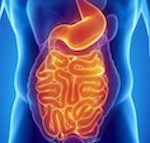 What we eat and drink can have a lot of influence on our gastrointestinal tract. For the first time, researchers systematically reviewed the effect of alcohol on gastrointestinal disorders. A limited number of available studies indicates that overall alcohol is not associated with the most common gastrointestinal disorders; more than 6 glasses of alcohol per week could have a negative effect. The results are recently published in the scientific journal Best Practice and Research: Clinical Gastroenterology.
What we eat and drink can have a lot of influence on our gastrointestinal tract. For the first time, researchers systematically reviewed the effect of alcohol on gastrointestinal disorders. A limited number of available studies indicates that overall alcohol is not associated with the most common gastrointestinal disorders; more than 6 glasses of alcohol per week could have a negative effect. The results are recently published in the scientific journal Best Practice and Research: Clinical Gastroenterology.
What is already known? The effect of food and physical activity on the disease development has been extensively researched.
What does this study add? This systematic review examines the effect of alcohol (and smoking) on gastrointestinal disorders for the first time.
6 glasses per week
The researchers looked at gastrointestinal disorders in relation to alcohol overall and specifically to more than 6 drinks per week1. The results indicate that alcohol consumption overall is not associated with functional dyspepsia (hypersensitive stomach, without specific cause). Consumption of more than 6 drinks per week increases the risk of functional dyspepsia, and therefore a dose-response effect must be considered.
Alcohol consumption is also not associated with the presence of irritable bowel syndrome. More than 6 drinks per week could lead to related complaints, such as abdominal pain. This is in line with the toxic effect of alcohol on the gastrointestinal tract.
First insights
This systematic review gives some first insights in the effect of alcohol on gastrointestinal disorders. The results are based on only three relevant studies. More research is necessary to investigate the exact association between alcohol and gastrointestinal disorders. Future studies should include specific amount of alcohol and take possible confounders into account, such as diet and physical activity.
Functional gastrointestinal disorders
Functional gastrointestinal disorders are gastrointestinal disorders without specific cause or clinical abnormalities. Diseases are diagnosed based on illumination of other disorders and the symptoms experienced by the patient, such as abdominal pain, altered bowel habits and bloating. Approximately 1 in 4 people suffer from gastrointestinal disorders; most common are functional dyspepsia and irritable bowel syndrome1-3.
Strengths of this study
• First systematic review with insights on the association between alcohol and gastrointestinal (GI) disorders.
• Studies from different countries were taken into account.
Limitations of this study
• Only three relevant studies on alcohol and GI disorders were available.
• The criteria for diagnosis of functional GI disorders varies greatly.
• Prevalence of various GI disorders differs per country.
• Not all studies adjusted for confounders such as food intake and physical activity.
• Other diseases and medication can also confound the association.
• Limited data on specific amounts of alcohol consumption is available.
References
1. B. Ohlsson. The role of smoking and alcohol behaviour in management of functional gastrointestinal disorders. Best Practice and Research: Clinical Gastroenterology, 2017.
2. International Foundation for Functional Gastrointestinal Disorders. Functional GI Disorders. https://www.iffgd.org/functional-gi-disorders.html
3. UNC Centre for Functional GI and Motility Disorders. What is a functional GI disorder? Christine Dalton, PA. https://www.med.unc.edu/ibs/files/educational-gi-handouts/What%20Is%20Functional%20GI.pdf
